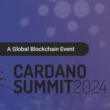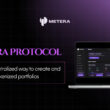Developed as an open-source marketplace contract for non-fungible tokens (NFTs) projects, Nebula aims to provide a comprehensive and user-friendly tool for all NFT projects.
Could Cardano’s NFT ecosystem become more unified and connected with Nebula?
What is an NFT Marketplace?

An NFT (non-fungible token) marketplace is a platform where people can buy, sell, and trade NFTs. NFTs are unique digital assets that are often used to represent digital art, music, videos, and other forms of media. Each NFT has a unique digital code that distinguishes it from other NFTs, making it a one-of-a-kind digital asset that can be bought, sold, and traded on NFT marketplaces.
How does an NFT Marketplace work?
An NFT marketplace typically works by allowing users to create an account and then upload their NFTs for sale. Once an NFT is uploaded, it is listed on the marketplace, and other users can view it and make offers to purchase it. If a buyer and seller agree on a price, the transaction is completed through the marketplace, and the seller receives payment for the NFT.
What problems arise with a classical NFT marketplace?
Classical NFT marketplaces often face several challenges, including:
- High fees: Many NFT marketplaces charge high fees for listing NFTs and completing transactions, which can make it difficult for artists and creators to earn a fair price for their work.
- Centralized control: Most NFT marketplaces are controlled by a centralized entity, which can limit the ability of creators to control their work and can make it difficult for new marketplaces to enter the space.
- Lack of interoperability: NFTs often exist on different blockchain networks, which can make it difficult for buyers and sellers to find and trade NFTs that exist on different networks.
- Complexity: Setting up an NFT marketplace can be a complex process, requiring significant technical expertise and resources, which can make it difficult for new marketplaces to enter the space.
These challenges have led some developers to explore new approaches to building NFT marketplaces, including the use of decentralized protocols like Nebula that aim to provide a more open, accessible, and user-friendly environment for buying, selling, and trading NFTs.
What is Nebula?
Nebula is an open-source protocol that was developed by the team behind SpaceBudz, Zieg and Alessandro. It is designed to serve as a marketplace for NFT projects, offering a flexible and adaptable solution. The Nebula protocol was initially built for SpaceBudz but has since been crafted to be highly adaptable and serve a wide range of NFT projects.
How Does Nebula Solve Problems of a classical NFT Marketplace?
Nebula is designed to address some of the challenges associated with traditional NFT marketplaces by offering a more open and decentralized approach. Here are a few ways in which Nebula aims to solve these problems:
Low fees
Nebula is an open-source protocol, which means that there are no centralized intermediaries charging fees for transactions. This can make it more cost-effective for artists and creators to sell their NFTs, as they can retain a larger share of the profits.
- Low fees: Nebula is an open-source protocol, which means that there are no centralized intermediaries charging fees for transactions. This can make it more cost-effective for artists and creators to sell their NFTs, as they can retain a larger share of the profits.
- Decentralized control: Nebula is designed to be a decentralized marketplace, which means that control is distributed across the network rather than being held by a single entity. This can give artists and creators more control over their work, as they can sell their NFTs without being subject to the rules or policies of a centralized entity.
- Interoperability:Nebula is built on the Cardano blockchain, which is a highly interoperable blockchain that supports cross-chain communication. This means that NFTs on the Cardano blockchain can be easily traded and transferred across other compatible blockchains, making it easier for buyers and sellers to find and trade NFTs
- Ease of use: Nebula is designed to be user-friendly and easy to set up, even for those without significant technical expertise. The protocol is written in JavaScript, a popular programming language, which means that developers can easily integrate it into their projects.
The Advantages of an open source NFT Marketplace
When using Nebula to launch a marketplace, its intended to provide you the complete ownership and control over it. You are not dependent on any centralized parties or intermediaries, giving you the freedom to manage and operate your marketplace as you see fit.
Additionally, by launching your marketplace using the Nebula protocol, you become part of a network of interconnected marketplaces. This network of marketplaces can be seamlessly integrated and combined to form powerful aggregators, which offer many of the same features and benefits as a full-fledged marketplace, but with significantly lower operating costs.
How Nebula Connects the Cardano Ecosystem
As more and more marketplaces are established using the Nebula protocol, a vast network of interconnected marketplaces is created.
These marketplaces can be seamlessly integrated and combined to form powerful aggregators, which offer many of the same features and benefits as a full-fledged marketplace, but with significantly lower operating costs.
An NFT aggregator allows users to browse and discover NFTs from multiple different marketplaces. These aggregators consolidate listings of NFTs from various marketplaces, making it easier for users to find and purchase NFTs, and saving time and effort for users from comparing the listings across multiple different marketplaces.
NFT aggregators can provide additional services, such as price tracking, portfolio management tools, and analytics to help users make informed decisions about their NFTs.
So when you list an NFT on your marketplace, it automatically becomes available on other marketplaces that aggregate your marketplace, providing greater reach and exposure for your NFTs.
The Benefits of Running an Aggregator on Nebula
Running an aggregator is a highly efficient and cost-effective endeavor, requiring minimal management and resources. Even a small team of a few individuals can effectively operate an aggregator.
These aggregators will compete with one another, striving to offer the most competitive fees and costs to attract customers and sellers.
The Future of NFTs on Cardano with Nebula
With the establishment of the Nebula protocol, the entire Cardano NFT ecosystem could become connected and unified, making it possible for NFT listings and bids to be easily accessible across the entire network.
When you list an NFT on your marketplace, it automatically becomes available on other marketplaces that aggregate your marketplace. This feature allows for a greater reach and exposure for the NFTs in your marketplace.
It’s worth noting that similar functionality exists in existing marketplaces on Cardano, however, the current process of setting up and connecting these marketplaces is often complex and time-consuming.
Nebula, on the other hand, was designed from the ground up to be easy to set up and highly flexible.
Additionally, the fact that Nebula is written in JavaScript makes the experience of using the protocol very convenient and developer-friendly.
Conclusion
Cardano is a decentralized network that has the potential to empower people and creators. A decentralized marketplace for NFTs built on top of Cardano would help to fully realize this potential by bringing power back to the people and avoiding single points of failure.
This would create a truly decentralized ecosystem where creators have full control over their own NFTs and marketplaces, and where the community can flourish without any centralized interference.
Nebula is still in development, but is slowly taking shape in a promising way.










